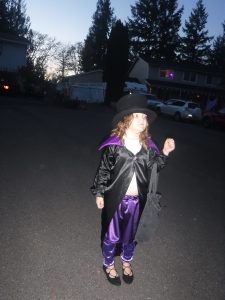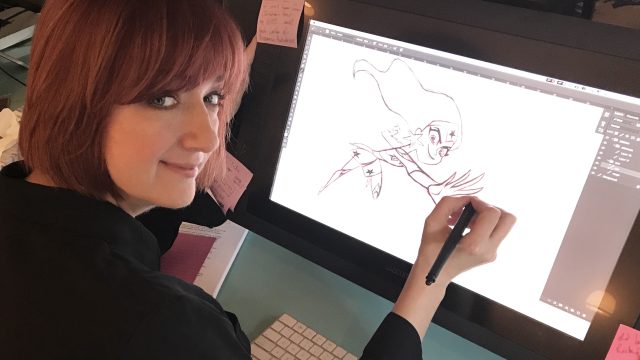One of my goals as a parent is to break down the borders of “for boys” and “for girls.” It’s probably harder with my son, who gets a lot more pushback in being interested in stuff “for girls” than his sister does in being interested in stuff “for boys.” Though I’m quite sure that, if the concept is still around when she’s older—she’s four—she’s going to get called a “fake geek girl” and have boys assume she doesn’t really have an interest in, for example, superheroes. Little do they know that she already has a passion for them, thanks in no small part to the work of Lauren Faust, who created one of her favourite shows.
Oh, she doesn’t dislike My Little Pony: Friendship Is Magic. Neither does her brother. And I’ve definitely had friends over the years who counted themselves as Bronies. My son is very fond of Powerpuff Girls, which she worked on. Come to that, my partner’s fond of Foster’s Home for Imaginary Friends, though I must admit I’ve never particularly gotten into it myself. As we so often say around here, if that were her whole career, that would be a career worth bragging about.
But where my daughter would admire her most, if she were old enough to really understand the concept that the shows she loves were created by actual people, is her work on DC Super Hero Girls. This is one of Sandy’s all-time favourite shows. She has a toy Wonder Woman from it that she loves. She wants a toy Green Lantern; Jessica Cruz is her preferred version of the character, and I am frankly appalled at how expensive toys of it are, so I need to get back to making a costume of it for her doll that she already has.
And for Halloween this year, Sandy demanded to be “magic super hero girl,” by which she meant Zatanna. She had a wonderful time at it. Much as I could tell her that super heroes aren’t just for boys, it’s her exposure to a show that’s all girls that convinced her. She won’t fall for the false dichotomy on this one, because she’s got Wonder Woman and Zatanna and Green Lantern—and, yes, Captain Marvel, who she also has a toy of—to show her the truth. She doesn’t know she has Lauren Faust to thank for it, but she does.
What’s more, when Sandy gets older, and realizes that, yes, cartoons have writers and so forth, she’ll know that women can have that job, too. Lauren Faust is a role model for her, whether Sandy knows it yet or not. And maybe she won’t want to be a cartoon writer; the odds are rather against it. But having Lauren Faust there will be one more example that she can do whatever she wants to, even if people try to convince her that it’s just for boys.
Let this picture of Sandy in her Halloween costume convince you to support my Patreon or Ko-fi!



